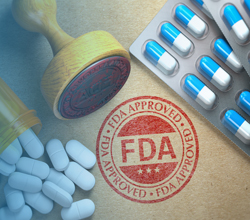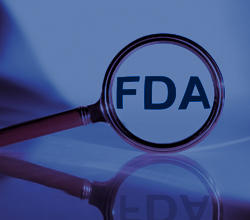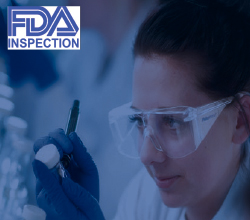
Applying Human Factors Best Practices for Medical Device Risk Management
 Robert A North
Robert A North
 60 Min
60 Min
Product Id: 701051
This session will highlight typical manufacturer pitfalls in designing user studies and usability tests as well as common mistakes and omissions regarding use error in PMA and 510K submissions. This webinar will apply to manufacturers with devices that require user-device interactions to set-up, operate, and maintain the device.

Japan PAL Audits performed abroad by the PMDA: What to expect and how to prepare
 Phil Smart
Phil Smart
 90 Min
90 Min
Product Id: 701049
This training course will concentrate on how to prepare for the audit, from language and culture to technical requirements and auditor expectations. Due to the 2005 revisions in the Japanese Pharmaceutical Affairs Law (PAL), the PMDA - Pharmaceuticals and Medical Devices Agency - is beginning to step up its scheduling of on-site audits of foreign medical device manufacturers.

Deploying Regulatory-Compliant Clinical Research Data Management Systems
 Dale Hunscher
Dale Hunscher
 60 Min
60 Min
Product Id: 701068
This presentation covers the fundamental principles underlying the various compliance regulations and discusses their implications for system designers and integrators. Electronic data capture and management systems for clinical research must support many kinds of research, including clinical trials, prospective observational studies, and retrospective "chart mining". Regulatory requirements for new drug and device trials are the most stringent and complex, but even the smallest investigator-initiated study in an academic health center or community hospital or clinic must comply with human subject protection regulations and professional ethical guidelines, and meet information security requirements such as the HIPAA Privacy and Security Rules. This presentation covers the fundamental principles underlying the various compliance regulations and discusses their implications for system designers and integrators.

Effective Records, Document Control, and SOPs
 Nick Campbell
Nick Campbell
 60 Min
60 Min
Product Id: 701020
We will discuss methods and practices that will improve the clarity and control of your document control system. Effective GMP documentation practices will be reviewed to ensure your paperwork is clear, complete, and easy to understand.

NEW Guidance for Industry: CGMP for Phase I Investigational Drugs
 Jamie Jamshidi
Jamie Jamshidi
 90 Min
90 Min
Product Id: 701064
This guidance is intended to assist in applying current good manufacturing practice (CGMP) required under section 501(a) (2) (B) of the Federal Food, Drug, and Cosmetic Act (FD&C Act) in the manufacture of most investigational new drugs (IND).

Accounts Receivables: How to Ensure Sarbanes-Oxley Compliance
 Mike Morley
Mike Morley
 60 Min
60 Min
Product Id: 700185
What credit professionals need to understand to carry out their responsibilities and duties to ensure Sarbanes-Oxley compliance. The Sarbanes-Oxley Act of 2002 makes company executives of publicly traded US companies personally and criminally responsible for the accuracy and reliability of the financial disclosures of their companies.

Understanding Single Sampling Attributes Acceptance Sampling for Defectives. Going beyond ANSI Z1.4 and ISO 2859
 John F Haury, Ph.D,CQE,CQM
John F Haury, Ph.D,CQE,CQM
 90 Min
90 Min
Product Id: 701055
This Sampling training will answer all your questions about acceptance sampling for defectives.

Quality Risk Management Using Failure Modes, Effects and Criticality Analysis
 Diane G Kulisek
Diane G Kulisek
 60 Min
60 Min
Product Id: 701066
This webinar will provide valuable assistance to all FDA-regulated organizations seeking to implement Risk Management through effective FMECA efforts. Diane will also provide internet links to valuable on-line FMECA and Risk Management references as well as to downloadable FMEA templates for use with MS Excel in association with this presentation.

Auditing Analytical Laboratories for FDA Compliance
 Steven S Kuwahara
Steven S Kuwahara
 60 Min
60 Min
Product Id: 700870
This presentation will discuss the advance preparation that is needed on the part of the auditor, and discuss the things that the auditor should look for during the audit. It will also be beneficial to workers in laboratories that will be audited or inspected by external parties.

PASSING A US FDA GMP INSPECTION: A-Z Guaranteeing a Pass the First Time through an FDA Inspection
 Michael Anisfeld
Michael Anisfeld
 90 Min
90 Min
Product Id: 701026
In this FDA cGMP Inspection training learn all the background information and key Techniques needed to guarantee a cost-effective, first-time pass through an FDA inspection - whether for a pharmaceutical product, an active pharmaceutical ingredient (API), a medical Device or a biological production. The world of GMP compliance has dramatically changed with FDA stressing pre-approval inspections, risk management, investigations and CAPA, quality systems approaches, and process and analytical technology (PAT) applications. If you last passed an FDA inspection more than four years ago, or if you have never faced an FDA inspection, you will be unprepared for FDA’s 21st-century inspection methods. This course provides all the background information and key techniques needed to guarantee a cost-effective, first-time pass through an FDA inspection— whether for a pharmaceutical product, an active pharmaceutical ingredient (API), a medical device or a biological product. All API, medical device, diagnostic product manufacturer, biotechnology product or pharmaceutical manufacturers—no matter in which country they operate—must pass an on-site FDA inspection of their facilities and operations if products are to be sold in the United States.
This webinar is designed to provide background and insight into the inspection process, as well as practical strategies and tactics that a company must know and implement in order to have the potential to pass an inspection the first time through. The webinar covers everything you need to know—from the background to the inspection, including the importance of the commitments made in the product application (the DMF, the NDA, the BLA or the PMA). In addition we will discuss the differences between good science and GMP compliance issues. The inspection process itself will be analyzed and reviewed in a manner that will allow you to immediately begin effective strategizing on how to pass the inspection. Nothing has been left out. The course touches on everything, and we do mean everything, you need to know to have a smooth and successful inspection.

Reading Between the Lines: Dealing with Gaps in GLP Regulations
 Anne E Maczulak
Anne E Maczulak
 60 Min
60 Min
Product Id: 700945
This presentation reviews the major areas described in FDA 21 CFR Part 58, particularly emphasizing the five key elements of preclinical studies: written procedures, personnel, equipment, data collection, and reporting. This webinar is targeted to scientists and management new to GLPs.

A FDA Audit - What You Need to Know
 Bernice Russell Bond
Bernice Russell Bond
 90 Min
90 Min
Product Id: 701042
This presentation will provide you with the tools to prepare for and support the audit process executed by regulatory bodies.

Quality Expectations for Drugs and Biologics during Early Development: Phase 2
 Steven S Kuwahara
Steven S Kuwahara
 75 Min
75 Min
Product Id: 701010
This presentation will be aimed at helping Regulatory, Quality Assurance and Quality Control personnel to understand the varying levels of quality activities that accompany early stages of Product development. Emphasis will be placed on the transition into full GMP work as clinical trials proceed, but the requirements for NDAs (or BLAs) will be discussed.

Development and Validation of Stability Indicating Methods-Planning-Design-Conduct-Documentation
 Dr. Ludwig Huber
Dr. Ludwig Huber
 90 Min
90 Min
Product Id: 701002
In this FDA compliance training learn regulatory expectations for stability indicating methods & Purpose and requirements for stability indicating methods. There is a lot of concern related to the stability of various drugs over different periods of time and different companies are following different approaches to this problem.

GAMP® Validation Protocols for Efficient Documentation
 David Nettleton
David Nettleton
 60 Min
60 Min
Product Id: 701044
This session describes how to use the GAMP® standard to determine what has to be validated and explains how to create documentation that will meet regulatory requirements worldwide.

How to Establish Quality Objectives that Produce Results
 Diane Bove
Diane Bove
 90 Min
90 Min
Product Id: 700965
The webinar provides a comprehensive and logical way to think about performance goals, metrics and the evaluation of goal progress.

Complying with Sarbanes Oxley (SOX), Section 404
 Bernice Russell Bond
Bernice Russell Bond
 90 Min
90 Min
Product Id: 700944
Learn how to comply Sarbanes Oxley compliance in a cost-efficient manner. Many have questioned whether the Sarbanes-Oxley law requirements can be met in a cost-efficient manner. Absorbing the first-year lessons — and, going forward, is a challenge facing all public companies as they prepare to meet quarterly and annual reporting requirements. And further challenges will arise as new compliance issues emerge and PCAOB regulations evolve.

Using Electronic Health Records and Claims Databases for Rapid-Response Pharmacovigilance Studies
 Alan Hochberg
Alan Hochberg
 60 Min
60 Min
Product Id: 700972
This presentation will give an overview of these new tools and techniques for the non-statistician/epidemiologist. It is vital that a pharmaceutical manufacturer be able to quickly assess these issues on a sound statistical basis, in a way that eliminates bias due to confounding factors as much as possible.

Establish and Maintain an Effective Supplier Qualification Program
 David Dills
David Dills
 60 Min
60 Min
Product Id: 701036
The process is critical for device manufacturers to effectively evaluate and select suppliers and subsequently implement agreements ensuring consistent material quality and/or services provided. This webinar will provide a valuable and informative overview and guidance to manufacturers, especially medical device companies that are preparing to establish or have established supplier/vendor management qualification programs.

How to implement a sustainable Information Security Management System (ISMS)
 George Spafford
George Spafford
 60 Min
60 Min
Product Id: 700948
This presentation will review the ISMS and architectural considerations that need to be addressed. An ISMS can help an organization effectively and efficiently manage information security related risks.


























